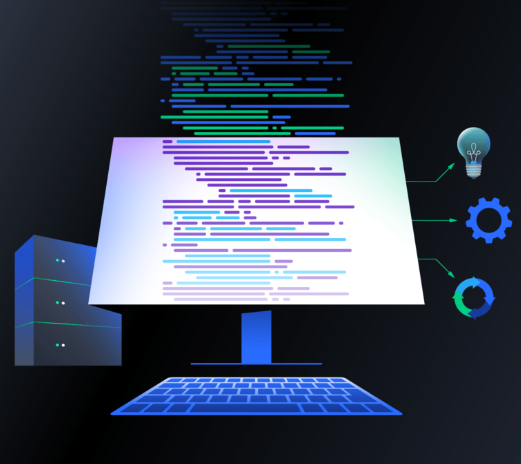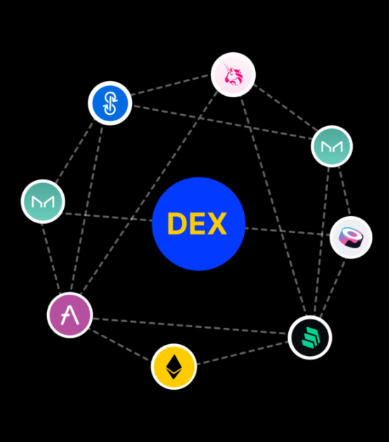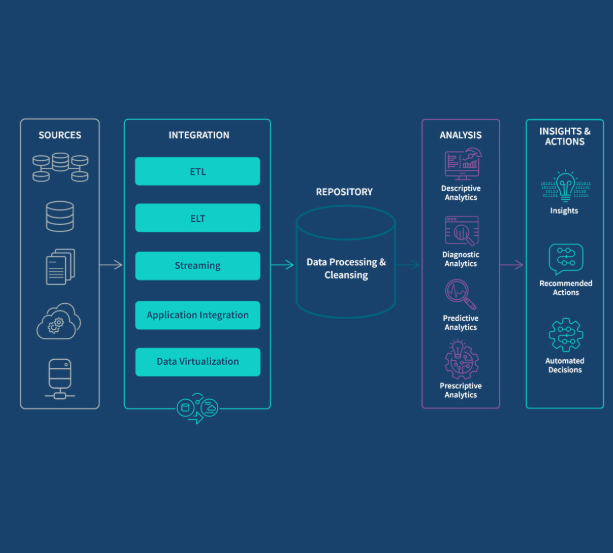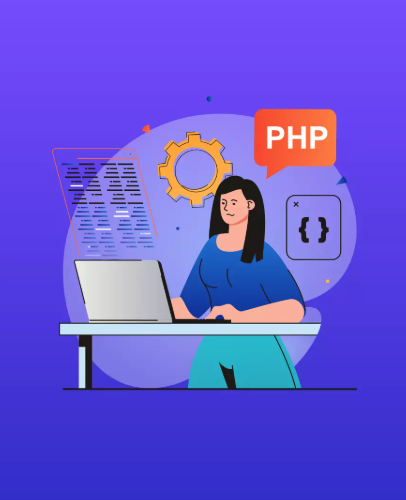
PHP continues to be a dominant force in web development, with a significant portion of websites relying on it. In May 2025, it powered 74.2% of all websites with a known server-side programming language. This widespread usage highlights PHP’s continued relevance and the growing demand for skilled PHP developers. If you’re looking to develop or enhance a dynamic, scalable web application, hiring the right PHP developer is crucial. In this guide, we’ll explore when to use PHP, what PHP developers do, and provide essential steps for hiring the right talent for your project.
What is PHP Used For?
PHP is a widely adopted server-side scripting language primarily used for web development. It powers numerous websites, content management systems (CMS), and e-commerce platforms. PHP is especially effective for building dynamic websites that interact with databases and user inputs, enabling backend automation, session management, and user authentication. Its efficiency, combined with a strong community, makes PHP a reliable choice for businesses and developers alike.
What Is a PHP Developer?
A PHP developer specializes in creating web applications by using PHP code to manage server-side logic, database connections, and user-facing features. They work alongside front-end developers and UX/UI designers to develop digital solutions. A PHP developer’s role involves more than just coding; they troubleshoot issues, optimize speed, and ensure the backend functions securely and efficiently.
Why Hire PHP Developers?
1. Cost-Effective and Open-Source
PHP is free to use, eliminating costly licensing fees. Its open-source nature allows for customization according to specific project needs, making it a cost-effective option for businesses of all sizes.
2. Strong Community and Resources
PHP boasts a large, active global community that continually contributes to its development. With access to extensive documentation, plugins, and troubleshooting forums, PHP developers have ample resources to ensure projects remain current with modern trends.
3. Scalable Web Applications
PHP is highly scalable, making it a great choice for businesses that expect growth. Whether you’re building an MVP or an enterprise-level system, PHP can adapt to increased complexity and traffic without needing a complete redesign.
4. Flexibility and Versatility
PHP works seamlessly across different operating systems, web servers, and platforms. It supports multiple frameworks and APIs, making it a versatile option for everything from simple websites to complex web portals.
5. Legacy Systems and Major Platforms
Many legacy systems and widely-used platforms like WordPress, Joomla, and Drupal are built on PHP. A skilled PHP developer can maintain and upgrade these systems, ensuring smooth transitions and continued performance.
Key Qualities to Look for in a PHP Developer
1. PHP Proficiency
A strong PHP developer should be highly skilled in PHP syntax and best practices, producing clean, maintainable code. Knowledge of standards such as PSR (PHP Standards Recommendations) is crucial for ensuring efficient, high-quality code.
2. Web Development Knowledge
In addition to PHP, developers should be familiar with front-end technologies like HTML, CSS, and JavaScript. A good understanding of AJAX, RESTful APIs, and client-server architecture allows for seamless integration between the front and back end.
3. Database Expertise
PHP developers must be proficient in working with databases, especially relational ones like MySQL or PostgreSQL. They should be able to write efficient SQL queries, manage large datasets, and ensure data security, all of which are essential for high-performance web applications.
4. Familiarity with PHP Frameworks
Experience with popular PHP frameworks such as Laravel, Symfony, or CodeIgniter can speed up development and improve code maintainability. Knowledge of frameworks indicates a developer’s adherence to modern development practices.
5. Strong Communication Skills
Effective communication is vital for PHP developers. They need to clearly explain technical concepts to non-technical stakeholders and collaborate with other team members to ensure the development process runs smoothly.
6. Problem-Solving Skills
PHP developers must be excellent problem-solvers. They should be able to diagnose issues, optimize code, and come up with innovative solutions to complex technical challenges.
Where to Find and Hire PHP Developers
1. Freelancers
Freelance platforms like Upwork, Freelancer, and Fiverr offer access to a wide range of PHP developers. These platforms allow you to review portfolios, client feedback, and ratings to find the right talent for short-term or one-off projects.
2. In-House Hiring
If you need long-term collaboration, hiring an in-house PHP developer is a great option. You can find candidates through job boards like LinkedIn or Indeed, or attend tech meetups and university job fairs. In-house developers offer greater control over the project and ensure continuous communication.
3. Project Outsourcing
Outsourcing PHP development to agencies or offshore teams can reduce internal workload while ensuring high-quality results. Agencies offer dedicated teams, project managers, and expertise across various development phases. While this might incur higher upfront costs, it provides long-term value through structured processes and scalability.
How to Hire PHP Developers
1. Define Your Project Requirements
Start by outlining your project’s functional and technical requirements. Clearly define the project scope, deadlines, and architecture preferences. This helps you determine the specific PHP skills needed, whether it’s core PHP or framework-based development.
2. Determine Skill Level
Decide the level of expertise required: junior, mid-level, or senior developers. Junior developers are suitable for basic tasks, while senior developers are better suited for complex architecture and performance tuning. Choosing the right skill level ensures you meet both project requirements and budget constraints.
3. Choose the Right Hiring Platform
The platform you choose will affect the quality of candidates. Freelance websites offer flexibility, while job boards like Indeed and Stack Overflow provide access to permanent hires. For high-quality, curated talent, consider platforms like Toptal or Gun.io.
4. Review Profiles and Portfolios
Examine candidate resumes and portfolios closely. Look for experience in projects similar to yours and check code samples or GitHub repositories to assess their coding style and technical expertise.
5. Conduct Technical Interviews
Technical interviews should include live coding sessions, debugging exercises, and problem-solving scenarios relevant to your project. Ask about past experiences with specific frameworks, deployment strategies, or API integrations. This hands-on evaluation ensures the developer can apply their skills in real-world situations.
6. Set Clear Contracts
Before beginning work, establish a clear contract outlining timelines, deliverables, payment schedules, and intellectual property rights. A well-defined contract reduces misunderstandings and ensures that both parties are aligned on expectations.
7. Onboard and Integrate
After hiring, onboard your PHP developer by providing access to code repositories, style guides, and project management tools. A structured onboarding process promotes early productivity and smoother integration into your team.
What Is the Cost of Hiring a PHP Developer?
The cost of hiring a PHP developer varies depending on factors such as project scope, developer experience, and geographical location. Freelance developers typically charge between $15 and $100 per hour, while full-time developers may earn salaries between $45,000 and $120,000 annually. Understanding the budget required will help you plan development cycles more effectively.
Conclusion
Hiring a skilled PHP developer is essential for ensuring that your project is completed on time, within budget, and with high-quality results. By clearly defining your project requirements, choosing the right platform, and conducting thorough interviews, you can find the ideal PHP developer for your team. Whether you choose freelancers, in-house talent, or outsourcing, following a structured hiring process will ensure the success of your web development project.















































